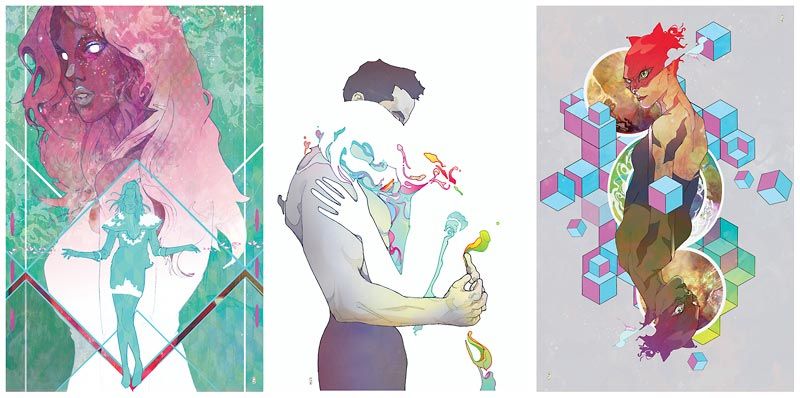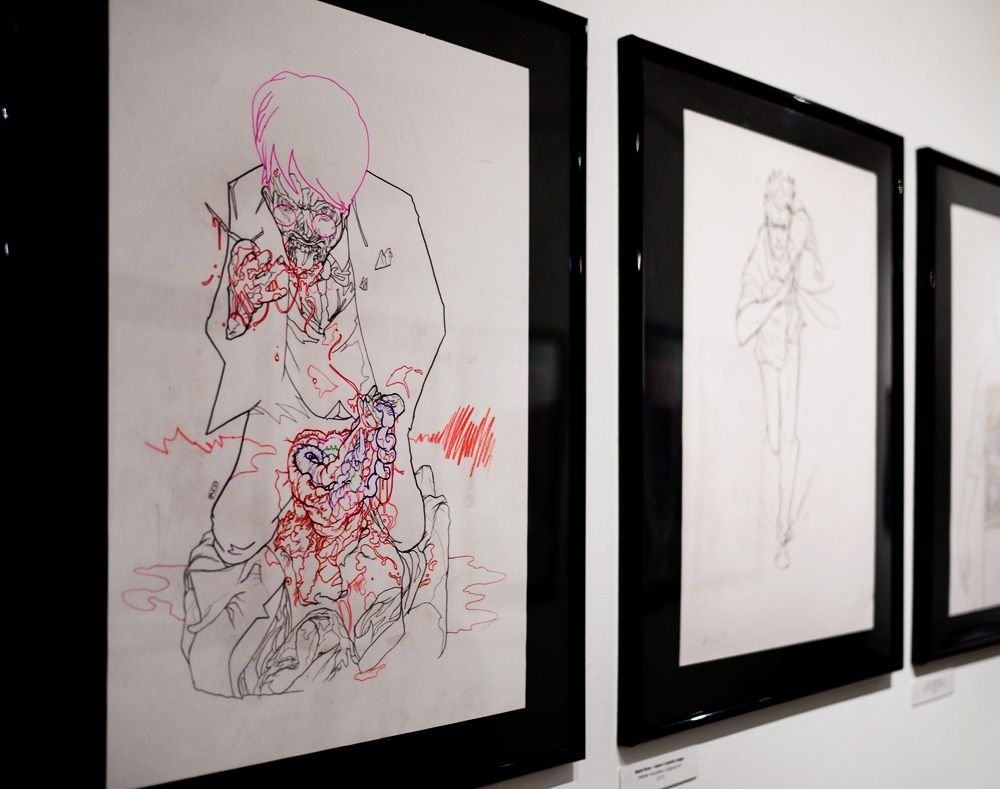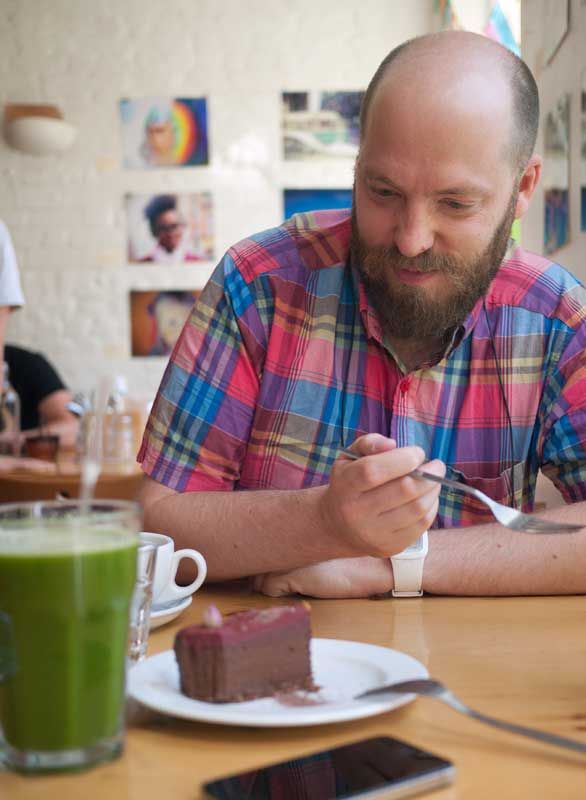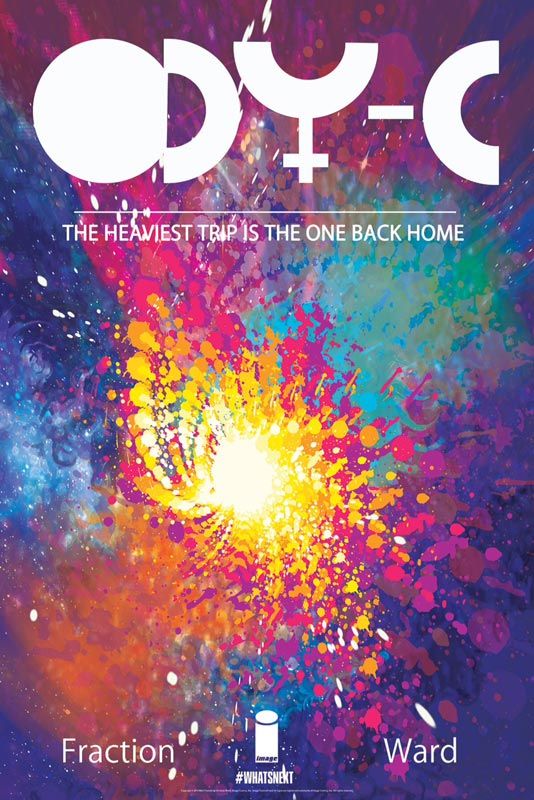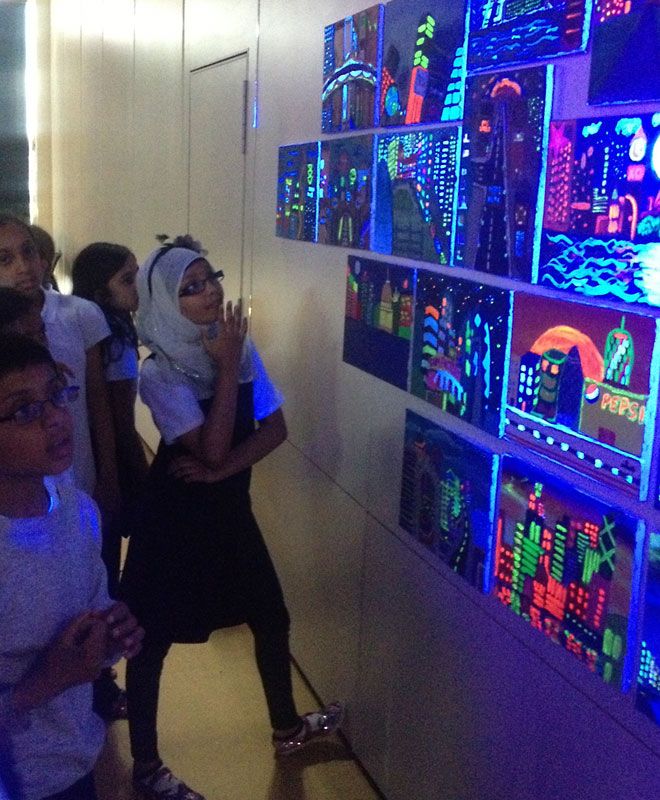Like many creative superheroes, Christian Ward leads a double life. Half the time he teaches children about art, leading them in experimental projects to learn about the tools and capabilities at their disposal. The other half of the time, he is creating unique and beautiful comic books.
Three years ago I met Ward in a comic shop when he was on vacation in San Francisco. We immediately bonded over our shared love of comic books and art, and have been friends ever since. At the time, Christian had just begun work on his first comic book; Olympus, a psychedelic journey of colorful gods which looked like no other comic book. His bold, colorful watercolors and his stylish characters are incredibly distinctive, and when he began work on Infinite Vacation it was great to see his work receiving a wider audience. When I visited London last month, we met up to talk about what projects are next.
First of all we met up at one of my favorite new-ish comic shop, Orbital Comics in Leicester Square, where they were showing a selection of Ward’s art in his “Dead Cats” exhibition. Comprising of some lovely process art from his covers on Infinite Vacation, some elegant illustrations, and of his art pieces of beautiful women. It was enlightening to see the techniques he uses, taking his simple hand-drawn, line art and scanning it to combine it with separately painted watercolor textures. The exhibition proved to be popular as we chatted too, with people stopping by to ask questions and examine the work closely.
I had assumed that, like so many comic book artists with a good grasp on proportion, he used photo references in his work, but Ward explained his philosophy for creating more fluid movements in his work: ”In my illustrative work, I use some photographic reference for proportions, but I made a decision early in my comic book career never to use photographic reference because I didn’t want it to be stiff.” He described his interest in exploring different styles of illustration in future books, particularly the very mutable styles of Manga where artists will explore diverse, expansive looks and physiologies for a character within a single story as a kind of “an emotional shorthand.”
Not having much time in London, I then coerced Ward into coming to one of my favorite cafes in Covent Garden, completely forgetting that it’s vegan (caveat; I’ll eat anything, but generally I tend towards extremes of either very healthy or very unhealthy). I ordered a celery juice and Ward got a piece of chocolate cake which he described as “tasting like disappointment”, (so I helpfully ate it while he spoke).
Making plans for the future, Ward described his next project; a collaboration with Matt Fraction called ODY-C (for Image Comics), which he described as “a gender swapping scifi adventure version of the Odyssey”, and went on to tell me the wild story of a dystopian, Barbarella-esque, warrior-mother on her way home to her daughter. Like the comic books of my youth, each episode will work as a stand-alone chapter, knitting together to form the full story. He showed me some fantastic preliminary sketches for her spaceship, the hero, some of the villains, and even an initial logo design.
After ODY-C, Ward is going to write and draw his own comic book; a supernatural thriller about three families. He spoke about the organic nature of the story he wants to tell, hooking readers in with the thriller, but always depicting the gradual spiral of the families and the characters moving through their lives, interacting with each other. “Spirals are my thing!” he delightedly exclaimed, and explained the way that he has used visual spirals as underlying page structures, echoes the spirals so ubiquitous in nature.
We spoke about the dramatic difference between a comic book script, and a finished comic with art. Ward explained his feelings about the role an artist plays in the storytelling experience: “What good art does, is it slows you down. It should keep you on the page, and it should keep you on the panel, and it should encapsulate each moment of time. That art should hold you within that bubble of time, and then pass you into the next bubble, and the next one after that…” Working with Image Comics, where their is a certain amount of flexibility, has allowed him to evolve this process. On a book like Infinite Vacation he was able to take a page of script intended to be a single page of art, and extended it to two pages in order to prolong the moment, a process which culminated in a last issue of almost 70 pages long.
I asked Ward about superhero comics and wether he had any interest in franchise characters. “I want to go on an emotional journey with readers, which is why I need to start writing my own comics… I’ve got things I want to do which don’t involve working with other people’s characters.”
He described the struggle between caring about creating a work to stand the test of time, and simultaneously to capture that perfect, ephemeral disposability of comic books, citing a friend at Marvel who once told him; “You’ll only do your best work when you don’t care, and you’re just doing it.”
Ward showed me photos of an exhibition of his student’s work which involved painting with UV sensitive paints, which then glowed under ultra-violet light, revealing their own art to them in a completely unexpected way. In teaching, it seems that Ward has found a deep well of creative wealth and inspiration to draw from. “You cannot make everyone love art, or I was going to make everyone a better artist. The secret is, you don’t teach people how to draw or paint, you teach them how to have confidence in their own ideas, and that’s a transferable skill. If you go into business, you’ll still need to have confidence in your ideas. Once you find out what you want to say, then you can think about what you want to say, and how to communicate that discussion… Because that’s what art is; it’s a conversation between the artist and the viewer. If you have something to say, you can be an artist.”
As we parted, Ward admitted that teaching kids is what gave him the impetus to begin making comic books, since they can “smell bullshit!” He had been using comic books to teach his students when a boy challenged him; “If you like comic books so much, why aren’t you making them?”, so he did!

